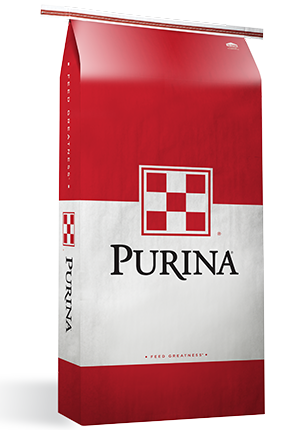
Win the Battle Against Intestinal Pig Worms
Traditional : Care and Management

Internal pig parasites, or pig worms, are one of the most common and costly parasites in pigs. They are found in the pig’s digestive tract, kidneys, liver, lungs or blood stream. If left unchecked and untreated, pig parasites will rob pigs of essential nutrients needed to gain weight and grow, while causing discomfort – resulting in more days on feed and more financial investment.
It’s possible to win the battle against intestinal pig worms. But, to fight them, you first have to know their symptoms.
Symptoms of pig worms include:
As a rule of thumb, adult pigs (i.e. 12 months and older) should be treated routinely at least twice a year (typically every six months). The breeding herd, including pregnant gilts and sows, should be wormed 2 to 3 weeks prior to farrowing to prevent newborn piglets from becoming infected. Young, growing pigs require more consistent deworming because they are more susceptible to intestinal pig worms. They should be treated at eight weeks of age, then every two months.
Don’t forget to clean out old, used bedding from the pig pens. Scraping out and replacing bedding regularly will help prevent infestation or re-infestation of pig parasites.
If you’re raising pigs for market, be aware of the withdrawal period of the pig dewormer. A withdrawal period is the amount of time it takes for the pig’s system to clear the anthelmintic (deworming) medication from tissues. After the time period has been met and no product remains in the pig’s body, the pig can be taken to market.
A convenient, effective and stress-free way to tackle pig parasites head on is with Purina® Nature’s Match® Complete Swine Feed with Dewormer – an oral deworming complete feed. Provide Nature’s Match® Complete Swine Feed with Dewormer as the sole ration according to feed label instructions in early summer to help reduce the population and egg-count of common parasites.
What’s the difference between Nature’s Match® Complete Swine Feed with Dewormer and a traditional oral deworming treatment? Convenience.
Swine feed with dewormer is as easy as feeding your pigs – a daily task for pig raisers. Skip the hassle of syringes and bottles and feed Nature’s Match® Complete Swine Feed with Dewormer as the sole feed ration for 3 to 12 days to pigs weighing from 25 to 200 pounds.
You have many choices when it comes to dewormers for pig parasites. Think about what is important to you and your pigs. Most importantly, give your pigs the right resources for a happy, healthy, worm-free life.
Learn more about choosing the right feed for your pigs.
It’s possible to win the battle against intestinal pig worms. But, to fight them, you first have to know their symptoms.
Symptoms of pig worms
Symptoms of worms in pigs can be tricky to spot. Keep a watchful eye on pigs during the spring and summer, prime pig parasite seasons.Symptoms of pig worms include:
- Scours
- Poor feed conversion
- Slow weight gain
- Coughing without a fever or other signs of respiratory infection
- Lethargic appearance including hunching, droopiness and dry skin
- Anemic, pale coloring of skin
- Worms in feces
How often to deworm
It’s hard to get a completely worm-free living environment due to intestinal worm reproduction, but proper care can keep your pigs’ worm-free. Establish a relationship with a veterinarian to develop a protocol that will fit the needs of your pigs.As a rule of thumb, adult pigs (i.e. 12 months and older) should be treated routinely at least twice a year (typically every six months). The breeding herd, including pregnant gilts and sows, should be wormed 2 to 3 weeks prior to farrowing to prevent newborn piglets from becoming infected. Young, growing pigs require more consistent deworming because they are more susceptible to intestinal pig worms. They should be treated at eight weeks of age, then every two months.
Don’t forget to clean out old, used bedding from the pig pens. Scraping out and replacing bedding regularly will help prevent infestation or re-infestation of pig parasites.
If you’re raising pigs for market, be aware of the withdrawal period of the pig dewormer. A withdrawal period is the amount of time it takes for the pig’s system to clear the anthelmintic (deworming) medication from tissues. After the time period has been met and no product remains in the pig’s body, the pig can be taken to market.
Ways to deworm
There are two common ways to deworm pigs: injection and oral. A veterinarian can help you determine the best choice.A convenient, effective and stress-free way to tackle pig parasites head on is with Purina® Nature’s Match® Complete Swine Feed with Dewormer – an oral deworming complete feed. Provide Nature’s Match® Complete Swine Feed with Dewormer as the sole ration according to feed label instructions in early summer to help reduce the population and egg-count of common parasites.
What’s the difference between Nature’s Match® Complete Swine Feed with Dewormer and a traditional oral deworming treatment? Convenience.
Swine feed with dewormer is as easy as feeding your pigs – a daily task for pig raisers. Skip the hassle of syringes and bottles and feed Nature’s Match® Complete Swine Feed with Dewormer as the sole feed ration for 3 to 12 days to pigs weighing from 25 to 200 pounds.
You have many choices when it comes to dewormers for pig parasites. Think about what is important to you and your pigs. Most importantly, give your pigs the right resources for a happy, healthy, worm-free life.
Learn more about choosing the right feed for your pigs.

